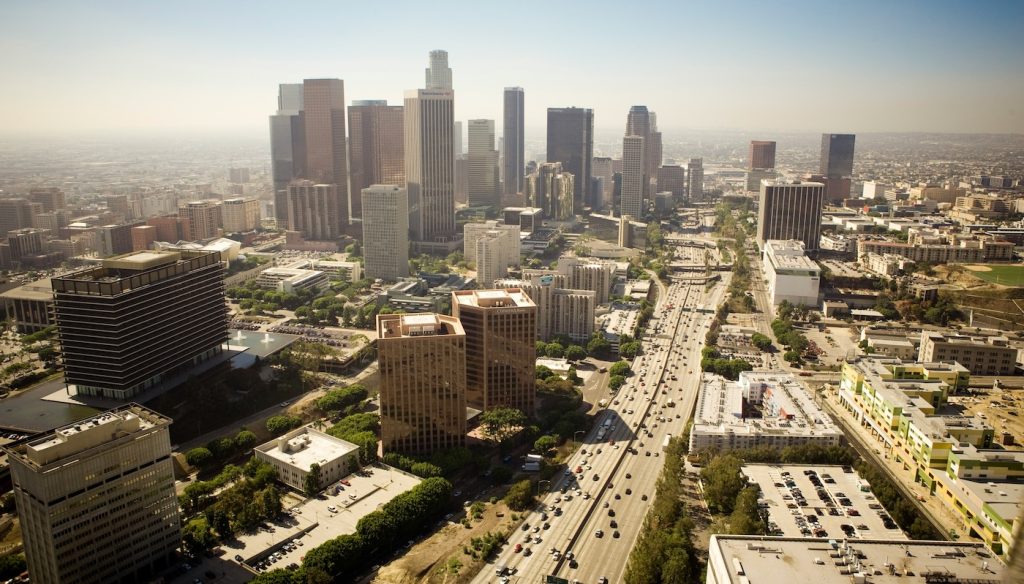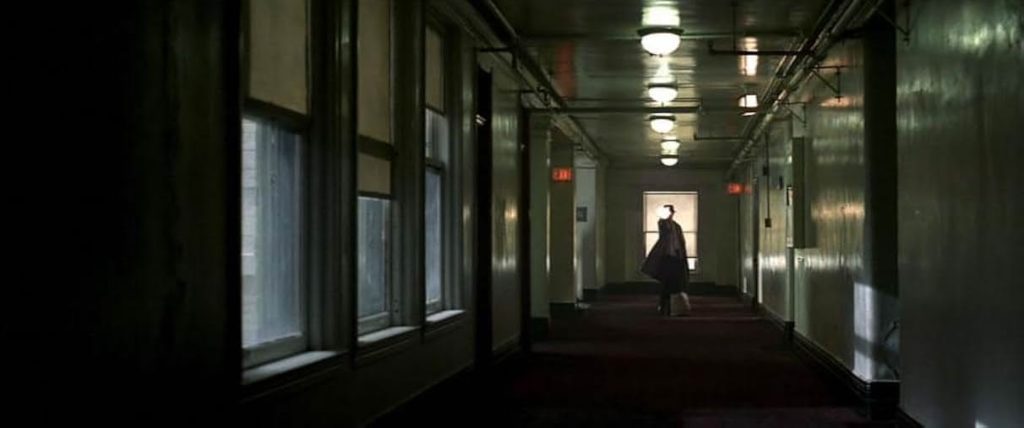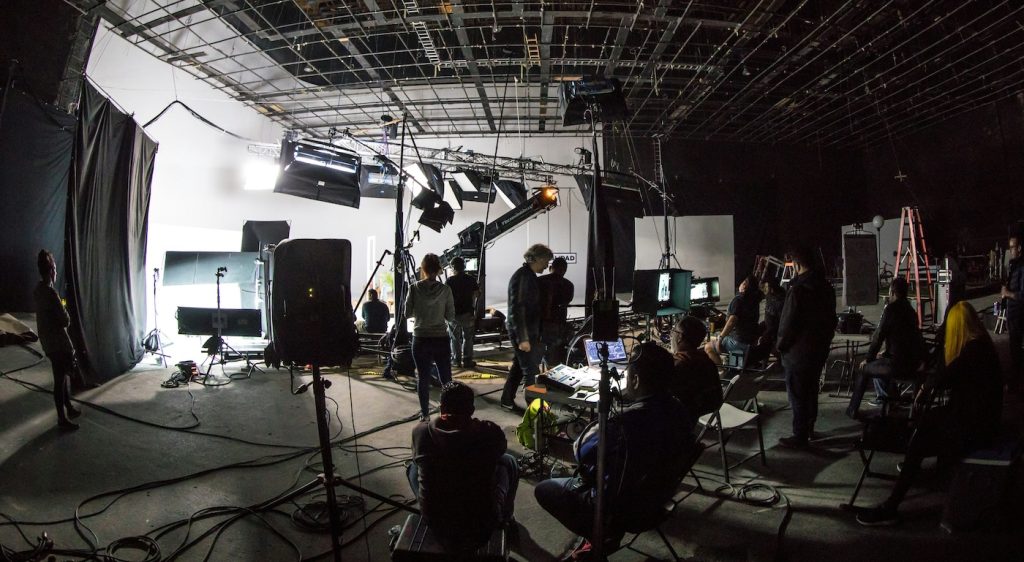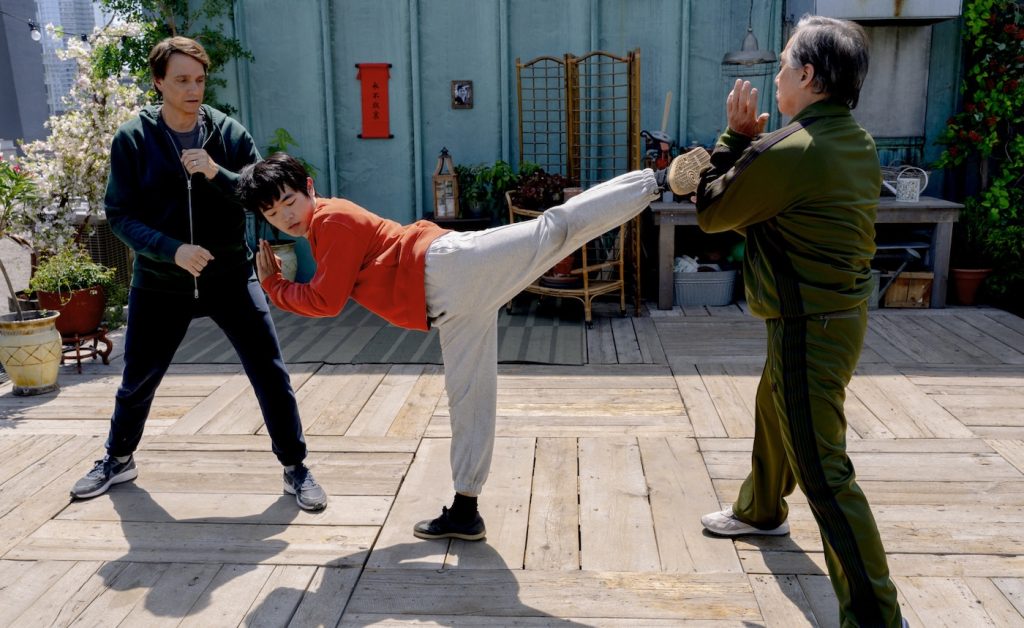From “Seven” to “Karate Kid: Legends”: How Central City Association of Los Angeles Champions Downtown LA’s Star Power
Nella McOsker is the President and CEO of Central City Association of Los Angeles (CCA), an advocacy group for businesses and organizations in downtown LA. I reached out to discuss how filmmaking impacts local businesses downtown during a particularly hectic time, when McOsker, like the rest of the city, was navigating the recent protests that spread across the city. “There’s a way to channel what they’re experiencing or feeling and the values they want to uphold towards supporting small businesses,” McOsker said.

Supporting small businesses is big part of McOsker’s remit. Many of those same businesses, both big and small, have served as the backdrop to beloved movies and television shows. Charlie Chaplin’s The Kid was filmed on Olvera Street, a historic walkway lined with restaurants, shops, and vendors that celebrate Mexican heritage. The city’s oldest landmark, the Bradbury Building, has been featured in numerous films, including Blade Runner, 500 Days of Summer, and The Artist. Across the street at Grand Central Market, La La Land filmed a cozy dinner scene with Ryan Gosling and Emma Stone. David Fincher’s Se7en shot at the Alexandria Hotel. Pretty Woman, Mr. & Mrs. Smith, and Don’t Worry Darling all shot scenes at the Cicada Club, a roaring twenties dance hall. The restaurant Cole’s French Dip has been featured in Mad Men and The Lincoln Lawyer. And a personal favorite, the exterior of the Starkman Building in the Arts District, is the face of Paddy’s Pub in It’s Always Sunny in Philadelphia. The list of examples from the entertainment industry’s 100-plus-year history is exhaustive, but it has also been economically beneficial for California.

According to an impact study of the California Film and Television Tax Credit 2.0, conducted from July 2015 to June 2020, productions have contributed nearly $21.9 billion to the economy, supporting over 110,000 total jobs. The program generated $ 961.5 million in tax revenue. For every dollar in tax credits approved, there was $24.40 in output, $16.14 in gross domestic product, $8.60 in wages, and $1.07 in initial state and local tax revenue. So even as California aims to finalize its latest tax incentives, known as Program 4.0, set to launch on July 1, 2025, and run for another five years, it’s business as usual.

Part of the CCA’s mission is to ensure those doors remain open. “We actually celebrated a centennial last year, so as an organization that’s been around for a century in different evolutions, we find ourselves also doing much more citywide and countywide advocacy, even though our roots remain in downtown,” mentions McOsker. The organization keeps an eye on the bustling city’s future, advocating for affordable housing, promoting public spaces and art, tourism, and, more importantly, the connection between residents and businesses that make up the downtown community. When it comes to production, CCA recognizes the importance to the Los Angeles region, but also the implications it can have on downtown if productions move out of the state. It’s why CCA members include the Motion Picture Association and FilmLA.
Besides her work at CCA, McOsker is also a volunteer board member at FilmLA. “It’s been about a year since I’ve been on the FilmLA board, and they are just so well equipped to handle the logistics of filmmaking,” she continues, “When I think about CCA’s role, there are challenges with filming productions across the city of LA, unfortunately. But there’s low-hanging fruit in my mind, policy-making decisions that could be made, like streamlining permitting, reducing fees that can make it easier, better, and more white-glove for productions. The CCA’s focus is on policy implementation.” Adding to its industry voice, CCA is also a member of the California Production Coalition, a group that advocates for film and television productions to remain in the state.
The organization is also preparing for larger events, such as the 2026 World Cup and the 2028 Olympics – both of which will bolster locally produced national and international broadcasts. “The World Cup games won’t be played downtown, but we’ll have plenty of visitors coming for fan experiences across the LA region. So we are having meetings about coordinating efforts around fan experiences,” she says. “And when we think about the Olympics, we are thinking about the kinds of infrastructure needs. We have had major success with our advocacy for the Los Angeles Convention Center. It’s an asset right in the middle of downtown that’s a huge economic driver, having been badly in need of modernization, updates, and expansion for years now. It’s an important investment to make happen not only on the Olympics timeline but because we need it for our city.”

No matter the production size, CCA has LA in its heart. “I was just with the Sony team behind Karate Kid: Legends and heard they used parts of downtown LA to look like New York, and I love that. There is such pride in that. Even in our little pocket of downtown at the corner of Wilshire and Hope, we see a lot of commercials being shot. And it feels good to see our buildings in them,” says McOsker. “If we can tap into more people feeling proud that productions are happening near their homes, yes,there are some burdens, but the greater outcome is the massive economic benefits it creates for your neighborhood in your city.”
This article is part of an ongoing series that raises awareness of the businesses and people who make the film and television community run. Central City Association is a member of the California Production Collation. You can find more about them here.
Featured image: Morgan Freeman and Brad Pitt in “Seven.” Courtesy New Line Cinema. Ben Wang in “Karate Kid: Legends.” Courtesy Sony Pictures.



